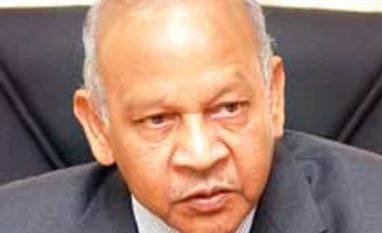The announcement put out by the finance ministry on Wednesday looked innocuous. It simply stated that Yogesh Agarwal had resigned as the Chairman of Pension Fund Regulatory Development Authority (PFRDA) during the day and Anup Wadhawan, joint secretary in the department of financial services, had been given additional charge of the regulator till a replacement is found. But what set tongues wagging was that Agarwal had resigned full 20 months before his term ended. This was the first time a regulator was stepping down before the end of his term.
Agarwal was appointed PFRDA chairman for five years in June 2010, after he had served as the chairman of IDBI Bank. The regulator had been without a chairman for over six months after Agarwal's predecessor, Dhirendra Swarup, retired in December 2009. Agarwal's views were diametrically opposite to those of Swarup. The much-hyped New Pension System (NPS) had not picked up and Agarwal blamed it on the "flawed scheme" which offered a "low fee" to pension fund managers. Agarwal's style of functioning, because he was a banker, was strikingly distinct from Swarup who was a bureaucrat. Swarup had always focused on keeping costs low for NPS and was not in favour of hard-selling it through agents. Agarwal, on the other hand, allowed fund managers to market the product and freed up the fee structure. He allowed fund managers to directly invest in equities, which some thought would put investors' money at risk.
In the last three years, he introduced several changes to overhaul the scheme but it failed to get great response from the private sector. As on August 7, 2013, PFRDA had a corpus of Rs 35,143 crore, of which only Rs 1,743 crore had come from the private sector. Agarwal was waiting for statutory powers to the pension funds regulator to bring more changes and attract investors. His wait ended when Parliament passed the PFRDA Bill in September, but soon thereafter his term came to an abrupt end. While Agarwal said he was asked to resign, the finance ministry maintained he had offered to quit. Agarwal's relationship with the finance ministry has been choppy, particularly after P Chidambaram took over in August 2012. Agarwal was appointed by then finance minister and now President Pranab Mukherjee. Though Chidambaram did some top-level restructuring in the finance ministry, a change of guard at the regulator was not expected and didn't happen either. Then why has he left?
Some of his decisions, particularly the change in the recruitment process which allegedly gave preference to the employees of IDBI Bank, was a sore point with the finance ministry, and there were fears that as regulator of a statutory body, he could become very powerful. Financial Services Secretary Rajiv Takru says now that the PFRDA Act has been passed by Parliament, the government may like to reconstitute the board. The differences between the finance ministry and Agarwal became more evident last week when his name was not in the shortlisted panel for whole-time PFRDA members. It is learnt that the ministry had made up its mind to remove Agarwal and, therefore, his name was not on the list.
Agarwal was appointed PFRDA chairman for five years in June 2010, after he had served as the chairman of IDBI Bank. The regulator had been without a chairman for over six months after Agarwal's predecessor, Dhirendra Swarup, retired in December 2009. Agarwal's views were diametrically opposite to those of Swarup. The much-hyped New Pension System (NPS) had not picked up and Agarwal blamed it on the "flawed scheme" which offered a "low fee" to pension fund managers. Agarwal's style of functioning, because he was a banker, was strikingly distinct from Swarup who was a bureaucrat. Swarup had always focused on keeping costs low for NPS and was not in favour of hard-selling it through agents. Agarwal, on the other hand, allowed fund managers to market the product and freed up the fee structure. He allowed fund managers to directly invest in equities, which some thought would put investors' money at risk.
In the last three years, he introduced several changes to overhaul the scheme but it failed to get great response from the private sector. As on August 7, 2013, PFRDA had a corpus of Rs 35,143 crore, of which only Rs 1,743 crore had come from the private sector. Agarwal was waiting for statutory powers to the pension funds regulator to bring more changes and attract investors. His wait ended when Parliament passed the PFRDA Bill in September, but soon thereafter his term came to an abrupt end. While Agarwal said he was asked to resign, the finance ministry maintained he had offered to quit. Agarwal's relationship with the finance ministry has been choppy, particularly after P Chidambaram took over in August 2012. Agarwal was appointed by then finance minister and now President Pranab Mukherjee. Though Chidambaram did some top-level restructuring in the finance ministry, a change of guard at the regulator was not expected and didn't happen either. Then why has he left?
Some of his decisions, particularly the change in the recruitment process which allegedly gave preference to the employees of IDBI Bank, was a sore point with the finance ministry, and there were fears that as regulator of a statutory body, he could become very powerful. Financial Services Secretary Rajiv Takru says now that the PFRDA Act has been passed by Parliament, the government may like to reconstitute the board. The differences between the finance ministry and Agarwal became more evident last week when his name was not in the shortlisted panel for whole-time PFRDA members. It is learnt that the ministry had made up its mind to remove Agarwal and, therefore, his name was not on the list.
)